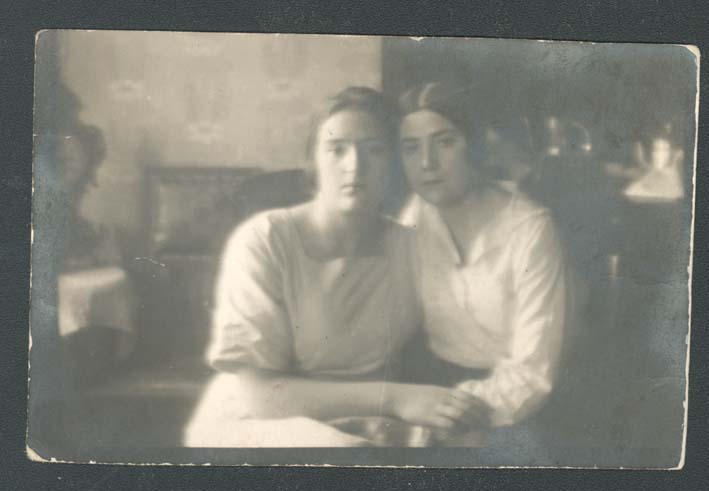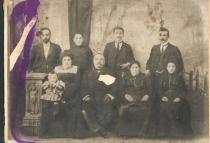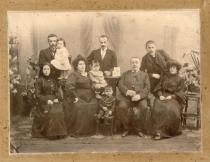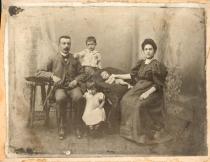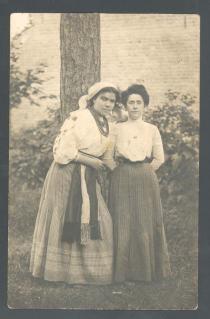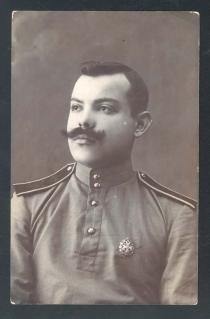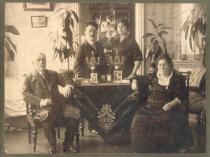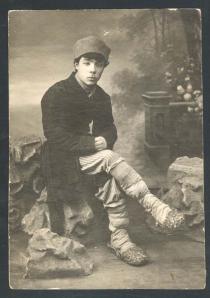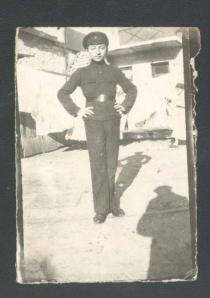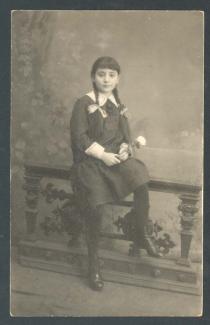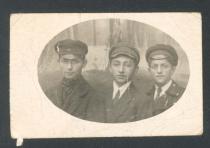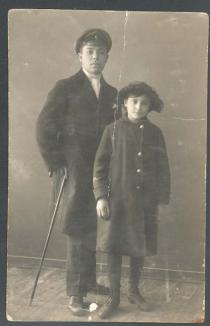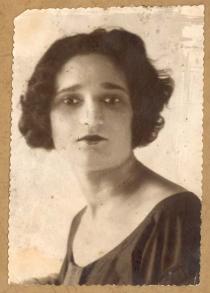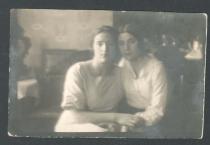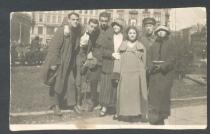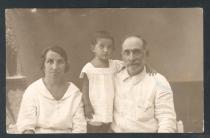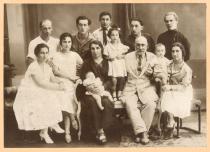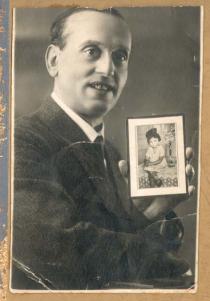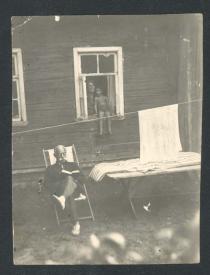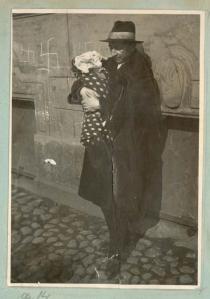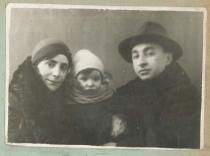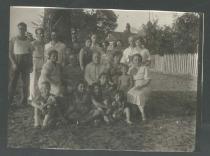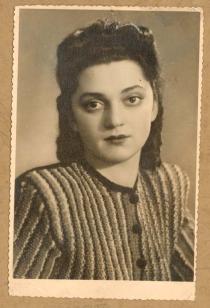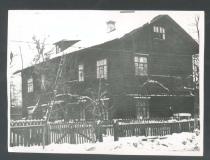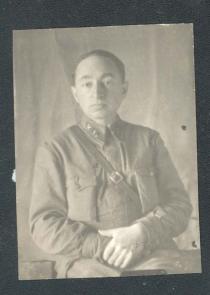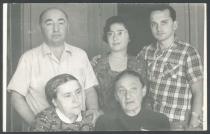My mother with her cousin Polya, then still using her maiden name Zlobinskaya. The photo is taken in 1924, when they had just ended school and lived together in the apartment in 2-nd Sovietskaya Street.
Mother's cousin - Aunt Polya Zlobinskaya, with whom they lived together in their childhood in Leningrad in the apartment in the 2-nd Sovetskaya Street, had suffered severe ordeals during the war. She married Yakov Bronshtein in 1930 or a little later. His father was a doctor, and he later moved to live in Kislovodsk, where he became the chief doctor of the Kislovodsk sanatorium. On June 7, 1941 Aunt Polya gave birth to a daughter, and their son was five years old by that time. When the war began, her husband decided to send his wife together with his two kids and a nurse, to his father in Kislovodsk - as far as possible from the war. But as you know, in 1942 the Germans broke through to the Caucasus and seized all the Caucasian area, the entire region. They issued an order for all Jews to come to a certain place with their belongings. But Aunt Polya said that she wouldn't go there with her children. Her father-in-law started assuring her, that Germans were not brutal beasts, that he finished a medical faculty in Germany and perfectly knew Germans and did not believe in all those ball yarns about Germans. He and his wife, as well as his younger daughter and others - the family was quite large - all set off to this assembly point, and, of course, everyone was shot. And Aunt Polya started to roam round and about because they couldn't stay in one place, for the neighbours knew that they were from Bronshtein family, and could report to the German authorities. So she kept rambling from town to town, leaving her children with the nurse, a Russian, Marusya by name, who gave out the kids either for her own children, or for her nephews. Aunt Polya went rambling from place to place, from Essentuki to Pyatigorsk, from Pyatigorsk to Essentuki and back, because otherwise she would have to check in in the German Commandant's office. She gave herself out for an Armenian woman, wore only black clothes, wrapped with a kerchief up to her very eyes. And once an elderly German on a horse cart overtook her on the road. He looked at her and asked: "Sie sind Jude?". " Nein! Nein!" - Aunt Polya uttered. And he said "OK" and brought her to Essentuki …to the Commandant's office, because she even had no place to spend the night. From Commandant's office she was sent somewhere to spend the night. In general, that's how they stayed alive. Thanks to the nurse, her children survived, too. But after the war, when my aunt returned to Leningrad, she couldn't find a job, because those who had been on the occupied territories, wouldn't be hired anywhere.
